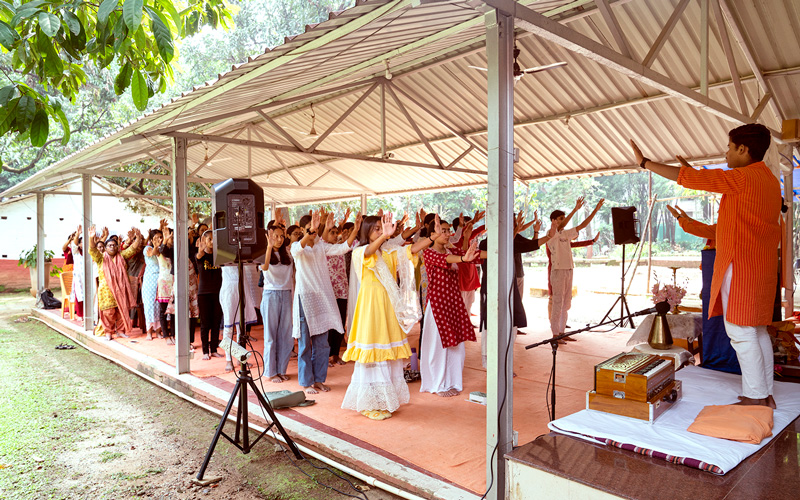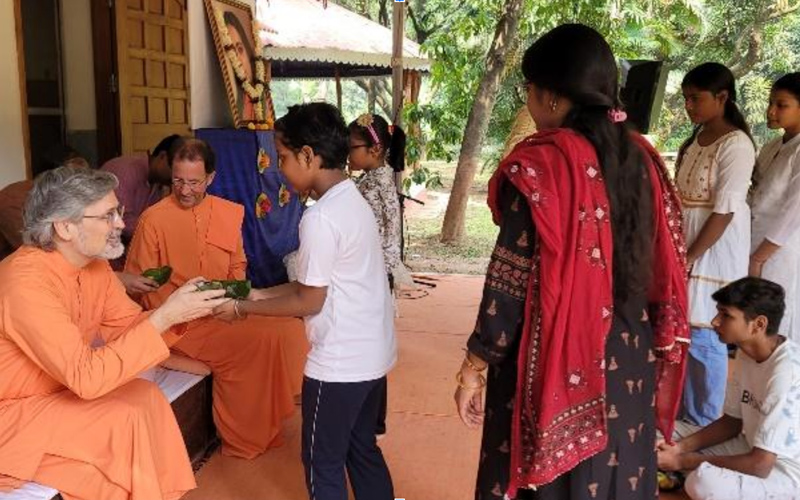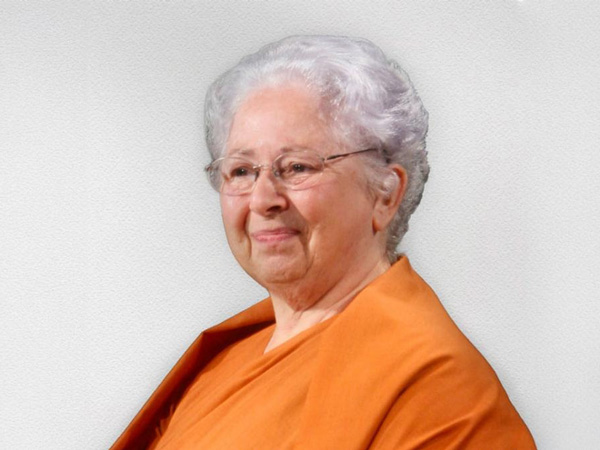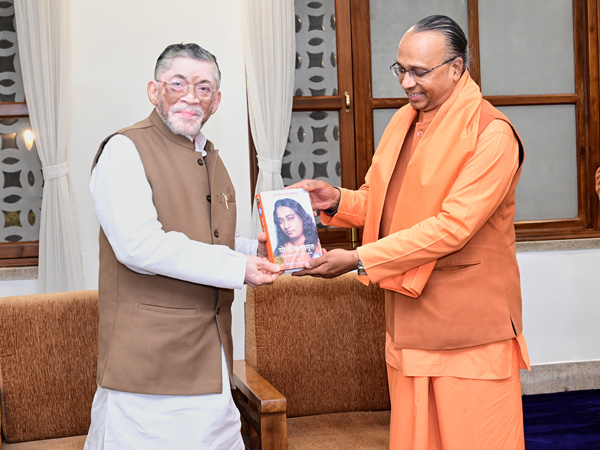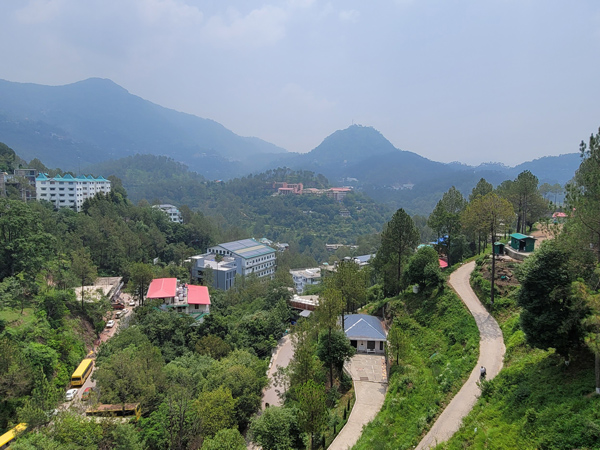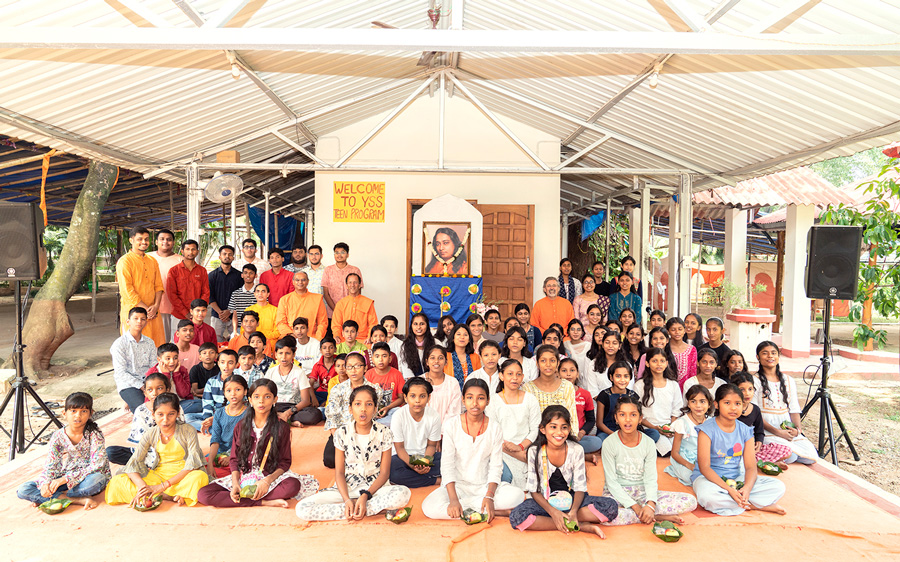
In a significant initiative to foster spiritual and personal development among youth, Yogoda Satsanga Society of India (YSS) inaugurated a new Teen Programme for ages 13 to 19. Held at Shiva Mandir in the YSS Ranchi ashram, the event was attended by Swami Shankarananda and two special guests from our SRF ashrams in America — Swamis Saralananda and Padmananda.
Swami Padmananda lit a ceremonial lamp before a picture of Gurudeva Sri Sri Paramahansa Yogananda as the children joyously sang the chant “Jai Guru.” He then delivered an inspiring opening message, sharing captivating stories from his decades-long experiences in youth outreach at SRF — including conducting Young Adult Sangha sessions at San Diego Temple and meditation sessions during summer youth camps at SRF. In an engaging manner, he deeply connected with the young audience of about 25 teens, saying: “Remember Guruji is with you always no matter where you go. If you keep looking for His hand with faith and optimism in all situations of life, he will reveal his presence to you through numerous happenings.”
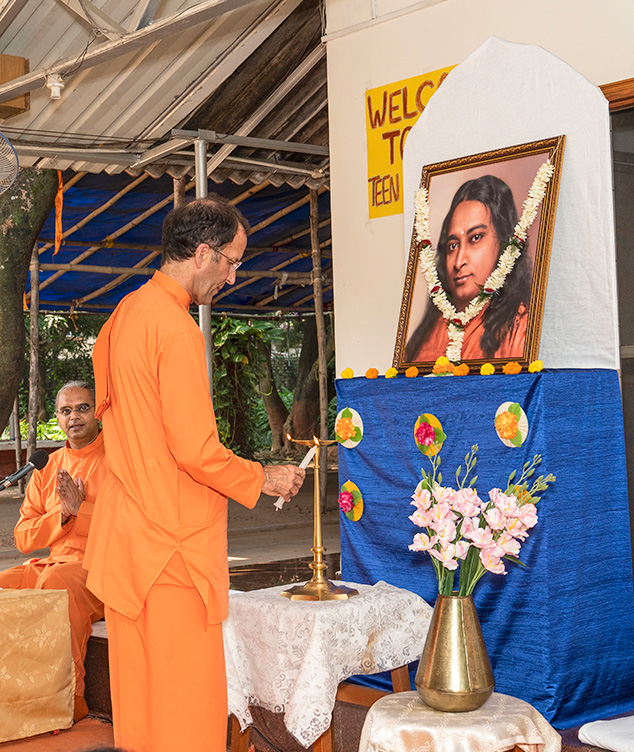
One of the teen participants led the opening prayer and chanting. This was followed by heartfelt reflections from other teenagers on the impact of Children Satsanga on their lives. Animesh, age 13, shared how attending Children Satsanga classes inspired him while Aadya, age 16, expressed her hopes to learn and grow through the new Teen Programme. Their words serving as a testament to the transformative influence of YSS’s youth initiatives.
Here is an excerpt from Animesh: “I have had the great opportunity and blessing to participate in YSS Ranchi Children Satsanga for almost eight years and also to participate in summer camps, annual picnics, pilgrimages, etc. The most important thing I learned is the importance of God and Gurus in our lives, how to contact Guruji in meditation, and how to live a good, happy life knowing that Guruji is always with me, guiding and protecting me.”
In her remarks, Aadya said, “I expect from the new Teen Programme that we learn how to meditate and develop our concentration. Because in this age group, we have a lot of distractions and schools don’t teach us how to tackle these efficiently. There are various problems—peer pressure, insecurities, low self-esteem, negative thoughts, fear, stress, anxiety, loneliness, to name a few.
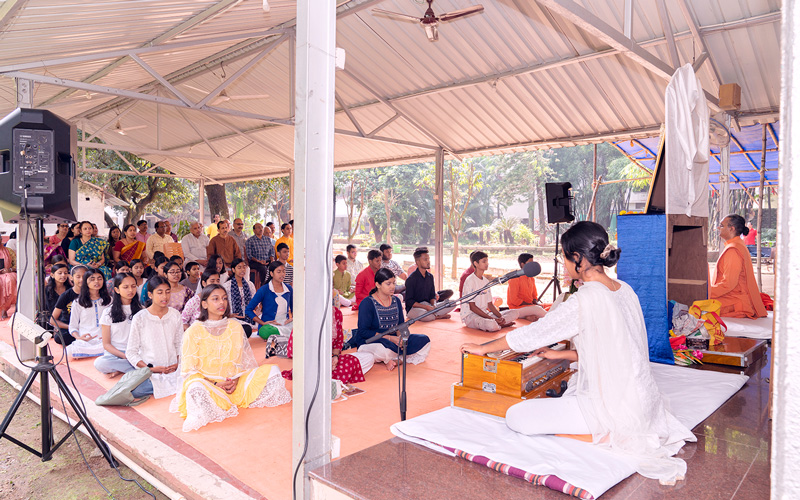
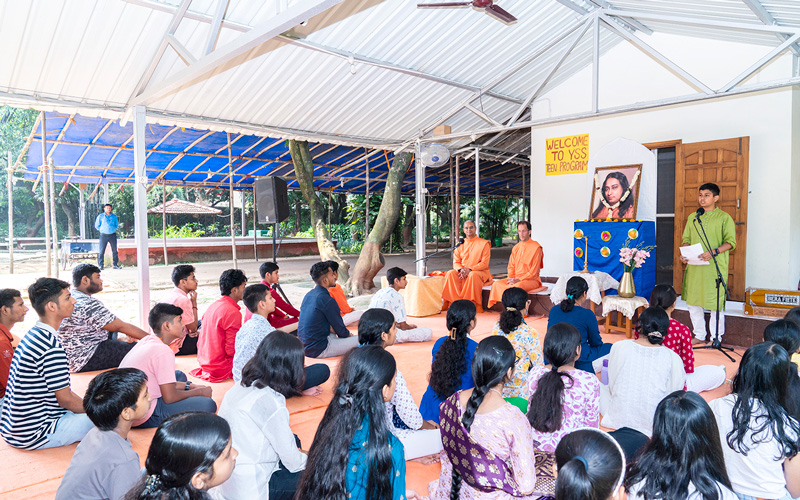
“A lot of teenagers of the present generation get depressed, especially if they score low marks in their exams. After constant efforts, if they still fail, they start thinking along these lines: ‘Why is this happening to me? What did I do to deserve this?’ Some even start blaming God for their terrible fates. Hence, I look forward to learning about dealing with such issues that anyone hardly addresses today, although they are so important. This generation hardly believes in tell-tales and myths. They want practical solutions along with proofs, and Guruji’s teachings will be the perfect guidance. I believe that Guruji’s practical teachings will help us win our inner battles.”
In his address, Swami Shankarananda said, “Guruji’s How-to-Live teachings show us how to rely on our innate soul power to face the challenges of life. They highlight the importance of balanced and all-round development for a happy life—including physical health, honing one’s mental capacities, and awakening soul intuition through meditation. Also, learning how to control our emotions, including dealing with failure, fear, and loss in constructive ways is important for resilience, our ability to bounce back from setbacks.”
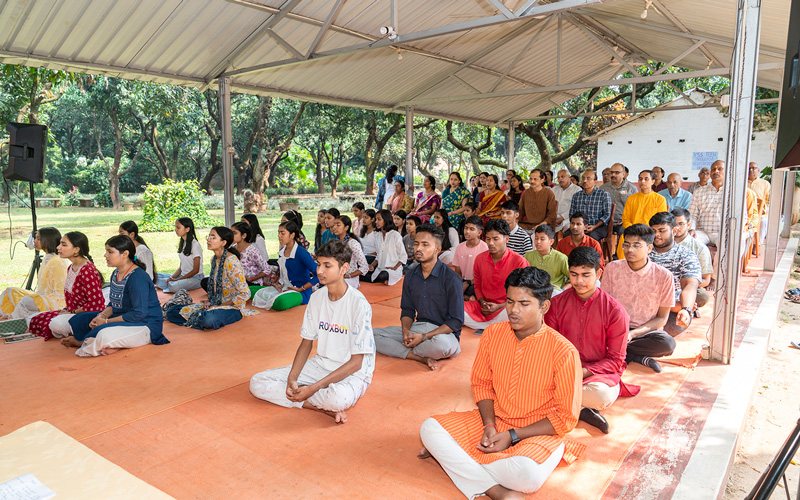
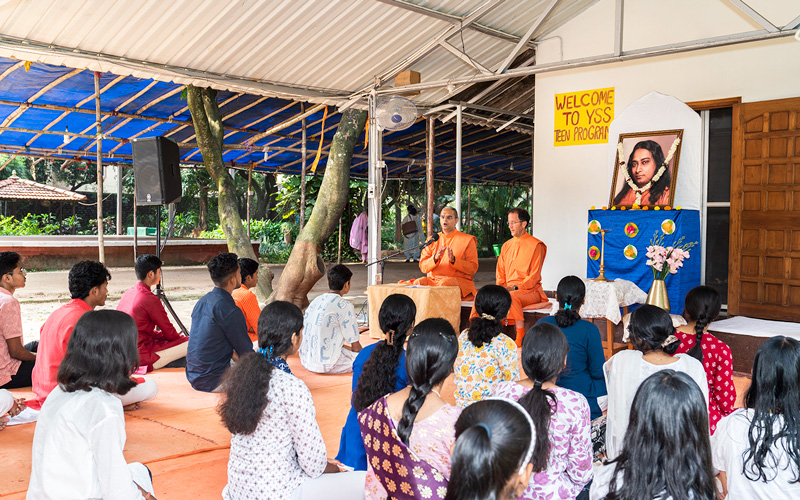
He continued, “In our new Teen Programme we shall explore a variety of these subjects in a range of formats such as group discussions, skits, crafts, games, demonstrations, and service activities. Through proven methodologies of pedagogy, over the coming weeks and months, we hope to introduce you all to the full depth and scope of Yoganandaji’s teachings.”
He stressed the important role that parents and adult mentors play in the lives of teens by quoting the example of Guruji’s father, Bhagabati Charan Ghosh, as described in Autobiography of a Yogi—how thoughtfully Mukunda’s (childhood name of Paramahansa Yogananda) father considered the requests of his children, exemplifying balanced decision-making and nurturing parental guidance.
The programme concluded by praying for others, practising a healing technique, and closing prayer led by a teen participant. Swamis Saralananda and Padmananda then distributed prasad and blessed the attendees in closing (see below).
